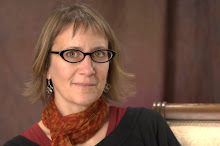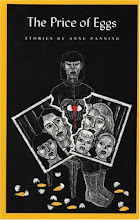
I have a Kindle in my possession. I did not buy it. I borrowed it from the university library where I teach. I got it because I needed to review a library book for a graduate class I'm teaching that was only available as an e-book. As luck would have it, the Kindle was not able to "accept" this e-book because of proprietary amazon issues.
I brought it home anyway, curious.
My children, Hudson (10) and Lily (7), love the Kindle. They think it's great fun to push buttons instead of turn pages. They like zooming around the menu, "bookmarking" their pages, and clandestinely hooking up to wifi. They've been reading fairy tales on it (it came preloaded with these) as well as Treasure Island. Once I came home from work and Hudson was sitting on the couch, reading on the Kindle while it was plugged in, charging. This struck me as strange, unsettling.
Last Saturday afternoon, I found myself finally with some free time to spend with the kids. I said, "Would you like me to read to you both?" and they said yes, then gathered on either side of me on the couch. The first book I read was Fly High, Fly Low by Don Freeman, about two pigeons who live in a big letter "B" atop a New York City building. It was an old discarded library book, hardback with a crunchy cellophane cover. We marveled at the muted oranges, reds, and purples of the sunset the illustrator must have done with charcoals. I ran my finger over one of the pages it was so beautiful.
Next, I read a fairy tale "Little Two Eyes" on the Kindle. I held the plastic rectangle between the two kids, and they argued over for got to push the "Next Page" button each time. There were no pictures. Both kids, I noticed, physically pulled away from me a bit until it was time to push "Next Page." And funny thing—we didn't really know when to stop. Was it a long story? I did notice there were numbers on the bottom of the Kindle, "11%, Locations 424-28, 3790." Were these page numbers? Or was I to assume we were 11% done with the story? Neither, I realized.
I've found myself reacting not against the Kindle, but instead, uninterested in the Kindle. It sits in the living room in its little black case, and though I glance at it, I have not yet been inspired to use it for my own reading. Why is that? I wonder. A. I'm at home. I have books everywhere, all around me. B. There are so many steps to reading on a Kindle. Turn on. Home. Menu. Select text. Press "next page" button. And then, reverse all of these steps when you're done. C. It's plastic and doesn't feel right in my hands. D. It's only the size of half a book. It's like reading a single page over and over. I prefer a two-page spread.
Here are some things you should know:
•I often go whole days without using my cell phone
•I do not have internet access on my cell phone
•I like to be alone a good portion of the time
•I write books of fiction and nonfiction
•I rarely answer our home telephone but stand and listen to who's on the machine
•I feel lonely quite often
•The university loaned me a Kindle 4, not the newest model, and certainly not a Kindle Fire
•I have what I call "The Panning Museum of Antiquated Technology" up in my attic, featuring things like old phones, sewing machines, primitive laptops, curling irons, ancient adding machines, a Rollodex
•"kindle" /verb/ definition: a. To light or set on fire. b. To arouse or inspire (an emotion or feeling)



.jpg)